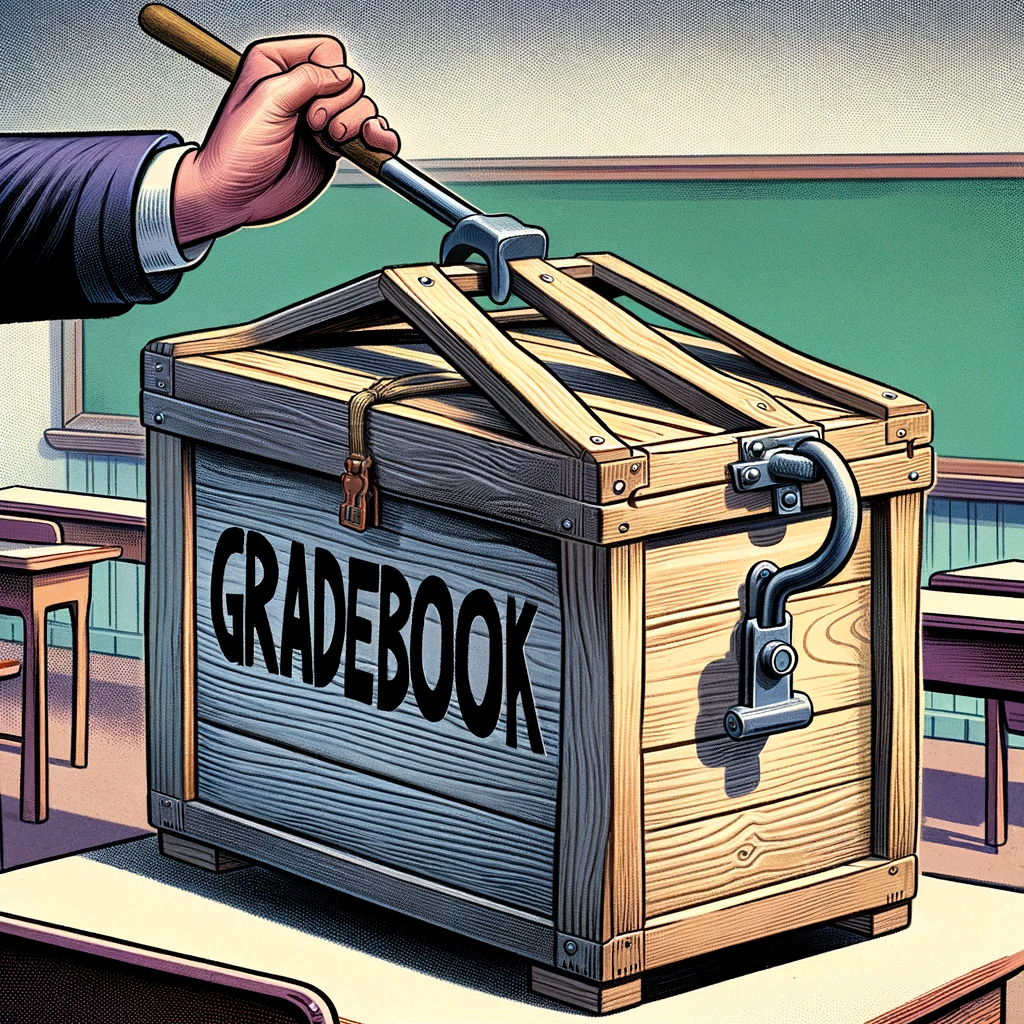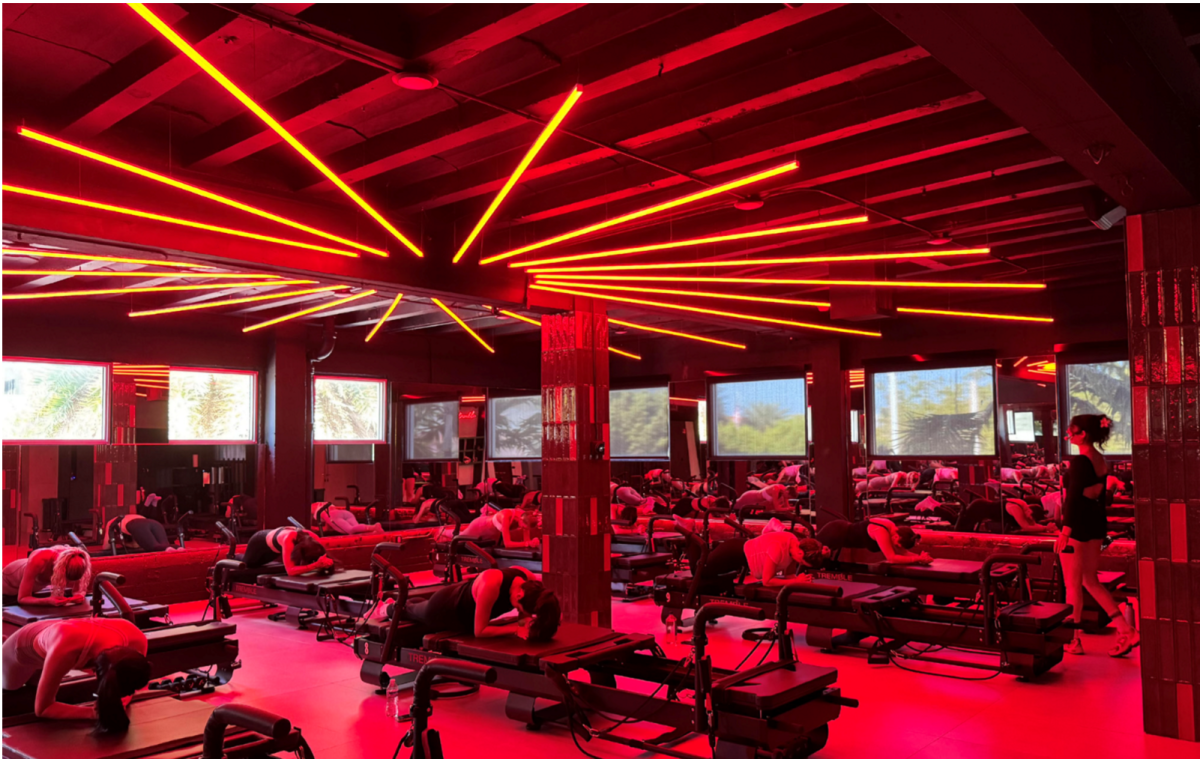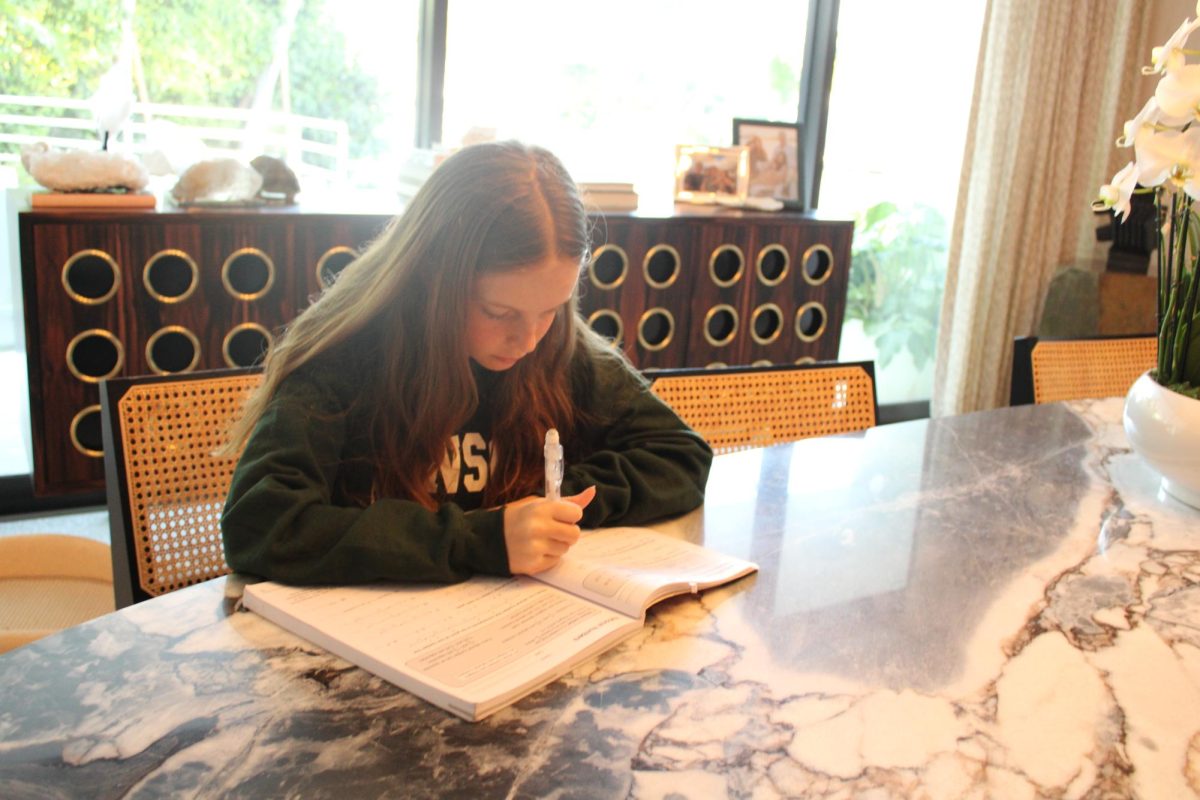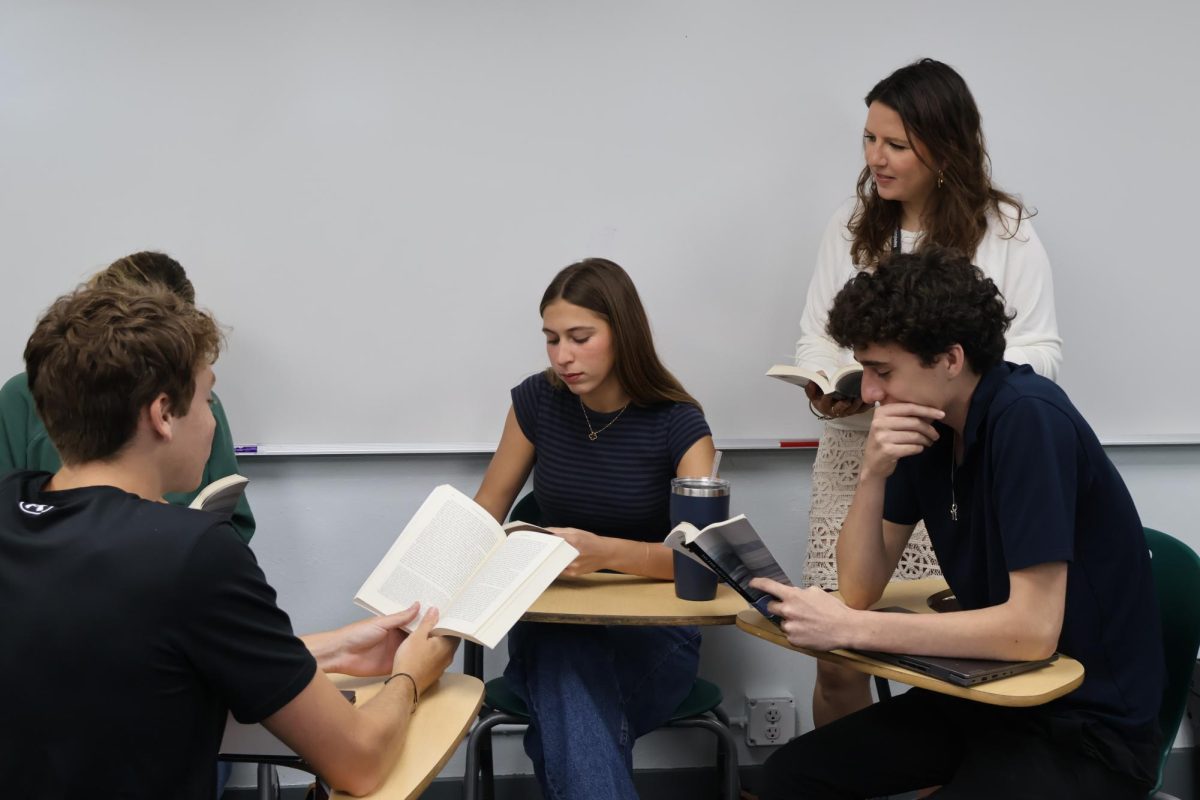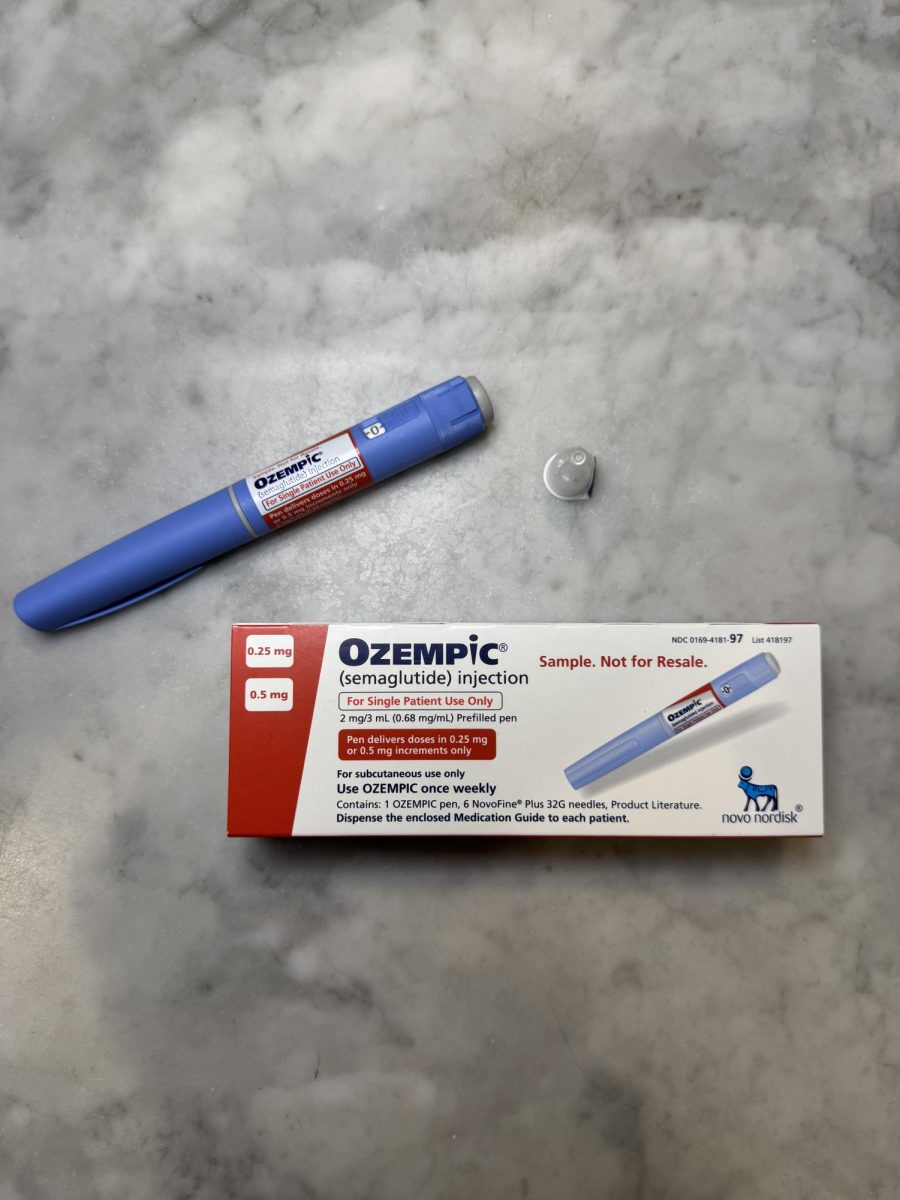It is common to hear Ransom Everglades students talk about a particularly dreaded experience: the feeling on a Thursday afternoon when they come to advisory and look at their interim grade report, only to find an unexpected bombshell. Students might spend the following Friday determining how long they will sleep in on Saturday morning, when their parents will receive the report via email.
For a long time, RE has implemented a closed gradebook system, which does not show students their grade averages in each course directly. Students may ask their teachers to see their numeric average at any point in the semester, but the only official, automatic reporting comes in the form of letter grades on interim reports. In previous years, each semester included three interim reports in addition to the report card at the end; this year, the number of interim reports has been reduced to two per semester.
This year, RE rolled out several significant changes to grading policy as part of a new focus on student wellness and reducing stress. These include less severe penalties for late work, a reduction of the weighting of end-of-semester assessments from 20% to 10%, and a new policy that empowers teachers to overwrite first-semester grades in yearlong courses if the student shows significant improvement in the second semester.
Amid all these changes, many members of the RE community—including students, parents and faculty—are now advocating for an open gradebook: a system that would allow students to check their grade averages at any time. Proponents believe it would help students achieve better overall academic performance while reducing both student and parent stress levels. Critics believe that it would do exactly the opposite, increasing student and teacher stress by exacerbating a grade-focused academic culture. The question has proven to be controversial.
For years, RE has used a closed gradebook policy. According to Assistant Head of School Dr. John King, “It’s not that we implemented the system we have now. Gradebooks went from a notebook in a teacher’s drawer to something electronic. For many schools, the next step has been to make it open. We have just not taken that step.”
As Dr. King alluded to, RE’s closed gradebook policy is a rarity among South Florida private schools. Ms. Morgan, an Upper School English Teacher, stated that “This is the first school I have ever worked at which doesn’t have an open gradebook.” According to a junior from Gulliver Preparatory, Julian Herrera, “Gulliver’s gradebook is live. An online portal shows your letter grade, average, and all your individual assignments. You can also check your GPA whenever you want.” Belen Jesuit Preparatory School has a similar policy, according to senior Nick Leon. “We can see our grades in real time from the first day of school to the last one. It doesn’t show the GPA because we only get that on interims,” Leon explained. Both students expressed surprise at RE’s system and said that they would never support changing their school’s approach.
Even so, many members of the RE community feel that a closed gradebook is justified because of the way it supports the school’s academic objectives, which include promoting a focus on learning that doesn’t fixate on grades or reduce the process to a single number. “I think that even now, there is too much attention being paid to the nuances of a grade. By exposing and presenting grades, it will be all anyone thinks about,” said Upper School math teacher Mr. Mike Becker. Ms. Morgan observed that “We already have a population that is very grade motivated. If we were to open it up, that could create an addiction where kids are constantly looking at the gradebook and asking their teachers ‘why did I get this grade’ and ‘when are you going to have this graded?’”
Mr. Becker added that any change comes at a cost. “I like the way that it works right now. I get used to the way things are and adapt my style to the way things are done. I don’t like change and in general, change causes stress and a period of chaotic adjustment to new ways of doing things,” Mr. Becker said.
This sentiment is also shared by members of the student body like Matthew Hawkes ’26. “Though [an open gradebook] seems like that would fix everything, it might just cause more problems than it solves,” Hawkes said. “[It] might mean that parents are even harder on the students. It could create not only a scary interim day, but a jolt of fear for every time a poor assessment is graded. I feel like students might live in fear.”
At the same time, fear is exactly why many proponents of an open gradebook support the idea—that is, reducing the fear that comes from not knowing where you stand. “We don’t see our grades enough,” said Giacomo Chinoy ’26. “Right now, I honestly don’t know exactly what any of my grades are.”
For Nicholas Harper ’25, the mystery behind what the interim report—which only shows the letter without the average—will reveal is a constant worry. “I don’t like how interims are the only time I can check without asking,” he said. Ms. Morgan pointed out that “when students get interims, it creates a tension and many times a surprise.”
One potential solution: what about adding more interims? World Languages teacher Mr. Nathan West had strong words about that approach: “No! No! No! Goodness no!” For Mr. West, “interims create stress-filled anxiety-ridden moments.” Much like Mr. West, Jacob Katz ’24 thinks that “adding more interims won’t do much and a much more radical solution is what’s necessary.”
An open gradebook is the “radical solution” Katz has in mind, and proponents believe it would not only decrease student stress but also incentivize students to work harder. An 11th grade parent who decided to remain anonymous due to the attention they would get from the article said that “an open gradebook is very overdue! The main factor for college admission is a student’s GPA. RE’s goal as a preparatory institution should be to get kids into good schools. I think that seeing the gradebook would incentivize students to make extra effort.” Gavin Heller ’25 concurred, saying, “not only would an open gradebook help stress levels, but I’m 100% sure it would improve RE’s overall academic performance.”
Having taught at several institutions that used open gradebooks, Ms. Morgan said she supported it. “Since I have always worked with an open gradebook, I don’t fear it,” she said. “One of the positive things that comes with an open gradebook is that students have more ownership over their education. They can see where their strengths are, and they can see what they need to improve on. It gives students more autonomy over their grades.”
But does “open” have to mean completely open—as in, students can check both their averages in each course and every single individual assignment grade at any given time? Nicholas Harper ’25 brought up a potential compromise. “I think that a system where we can only see the letter grade but not each assignment would solve every problem,” he said. “With this, the timeline for teachers updating their gradebooks would not change from how it is now, and parents would not be hovering over every assignment.” Nick Torres ’27 went so far as to say that “I don’t really see why someone would oppose this.” Harrison Lamnin ‘25 agreed that such a system “would be beneficial,” but said he does not think that it would fix everything. “You don’t know where you stand within that overall grade. For example, you wouldn’t know whether you have a low A- or a high one.”
Mr. West also supported a semi-open gradebook. “I think that’s a brilliant idea. There’s no nitpicking on tiny grades that don’t end up affecting anything, and I don’t think that students would need to brace themselves for every report card. We should push this plan to the front of the table,” he said.
However, Mr. Becker had other thoughts. “I don’t like that either because the students will constantly be asking the teachers things like ‘I see my overall grade. Did you include my homework? Did you include that last test? What do I need to get to the next grade?’ I don’t think that changes anything,” he explained.
According to Dr. King, “discussions” around changing the gradebook system are “still ongoing,” and the question of how it would be implemented is crucial. “The discussions we are having are not ‘Should we open the gradebook or not?’ They are ‘If we did open it, how might we open it?’ We have talked about different ways of approaching this,” he said.
As Ms. Morgan pointed out, “You can’t just open a gradebook. There’s a whole community consensus that needs to be reached.” Dr. King brought this up, saying that “There hasn’t been a consensus about a change to the system, but what should be done is what best serves students. We want the best solution, but we need to accept that it’s not going to be loved by every single person.”
“I think eventually we will change what we have now. You don’t want to change and then keep changing. We want to arrive at something we feel confident about,” he added.
In order to understand what the RE community thinks about this, you can use this link below to give your opinion on what you want RE to change about the gradebook system, if anything at all. The votes will all be anonymous and the results will be posted on recatalyst.org.
https://forms.gle/C9KmxQLHsURTq3Dy7


